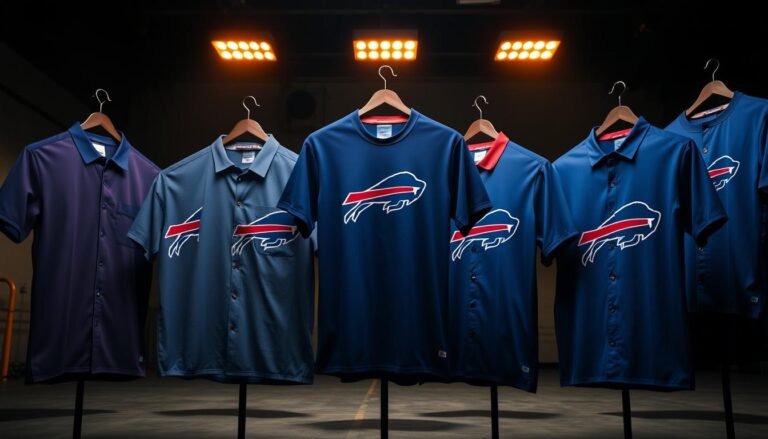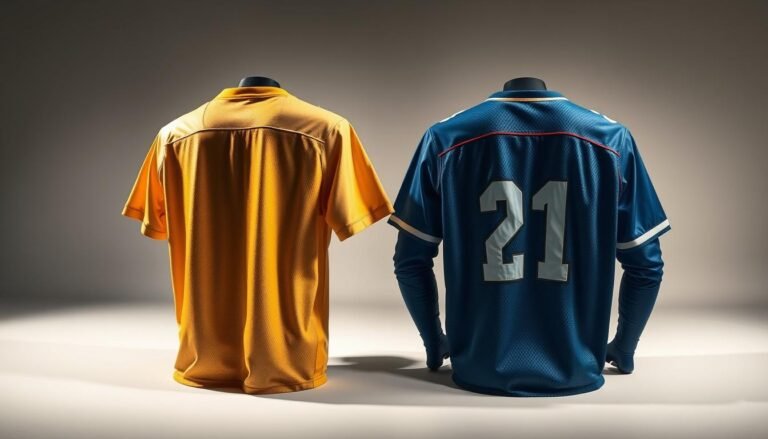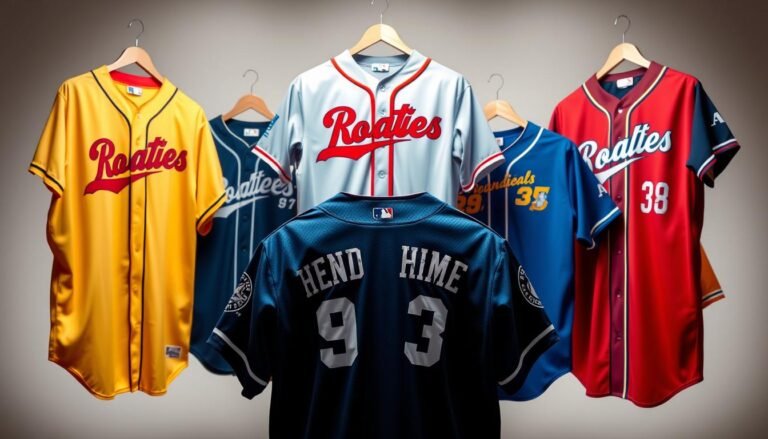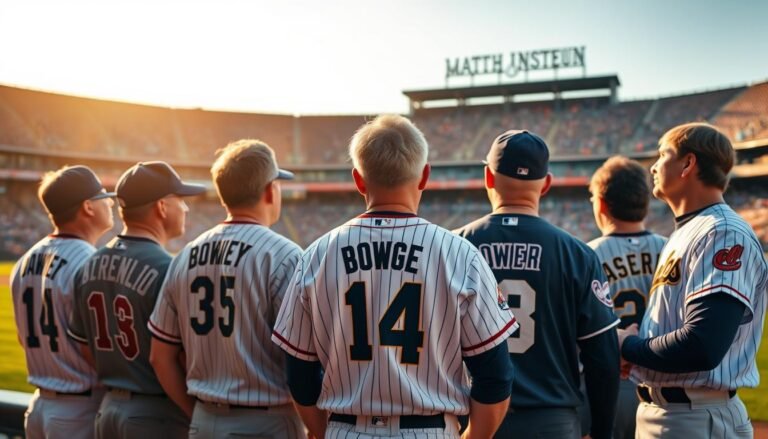For basketball enthusiasts worldwide, a player’s jersey number signifies legacy, identity, and style. The selection of these numbers is more than just a random pick; it’s a blend of personal preference, historical significance, and team traditions.
The evolution of jersey numbers in the NBA is a fascinating story that reflects the league’s growth and the changing preferences of its players. From iconic numbers that have become synonymous with basketball legends to the modern trends influencing today’s players, the story behind NBA jersey numbers is rich and diverse.
The significance of jersey numbers extends beyond the court, representing a player’s brand and personal story. Understanding how these numbers are chosen provides insight into the culture and history of the NBA.
Key Takeaways
- The selection of NBA jersey numbers is influenced by personal preference, historical significance, and team traditions.
- Jersey numbers have evolved significantly over the history of the NBA, reflecting changing player preferences and cultural influences.
- Iconic jersey numbers have become an integral part of basketball history, symbolizing the legacy of the players who wore them.
- Modern players are influenced by a variety of factors when choosing their jersey numbers, including personal significance and current trends.
- The cultural impact of jersey numbers extends beyond the basketball court, representing a player’s identity and brand.
The Evolution of NBA Jersey Numbers
From simple beginnings to the complex system we know today, NBA jersey numbers have undergone significant transformations. The history of basketball jersey numbers dates back to the early 1920s when basketball was first gaining popularity.
Early Basketball Numbering Systems
In the early days of professional basketball, jersey numbers were not standardized. Teams used various numbering systems, often influenced by other sports like baseball. The numbers ranged from single digits to double digits, with some teams using specific numbers to identify players’ positions or roles on the team.
Standardization of Numbers in Professional Basketball
As the NBA evolved, the need for standardization became apparent. By the 1950s, the league began to implement rules governing jersey numbers. This standardization helped in identifying players more easily and contributed to the game’s overall organization.
The First NBA Jerseys and Their Numbers
The first NBA jerseys featured numbers that were often influenced by the teams’ early basketball traditions. Some of the earliest NBA players wore numbers that have since become iconic, such as #11, worn by players like Bob Davies. The choice of these early numbers laid the groundwork for the diverse range of numbers seen in the NBA today.
The evolution of basketball jersey numbers is a reflection of the game’s history and cultural shifts. Today, players have a wide range of numbers to choose from, from 0 to 99, each with its own unique significance.
- The introduction of single-digit numbers for key players
- The expansion of available numbers beyond the initial 1-15 range
- The influence of international players on number choices
These developments have contributed to the rich history and diversity of basketball jersey numbers we see in the NBA today.
Official NBA Rules Governing Jersey Numbers
The NBA has strict rules governing jersey numbers, ensuring a unique identity for each player. These regulations have evolved over time, reflecting changes in the game and its culture.
Current Number Regulations
The NBA currently allows players to choose numbers between 0 and 99, providing a wide range of options. According to the league’s rules, “Players may wear numbers 0 and 00 through 99.” This flexibility enables players to select numbers that hold personal significance or suit their preferences.
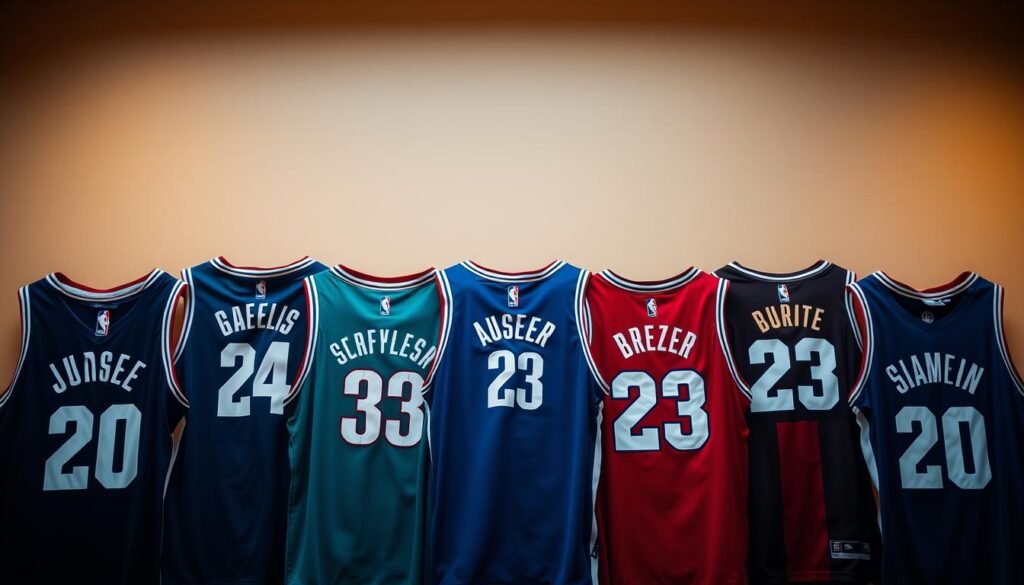
Historical Changes in Number Rules
Historically, the NBA has adjusted its number regulations. Initially, the league had more restrictive number policies, but over time, these have been relaxed.
The 0-99 Range and Special Exceptions
The current range of 0-99 was not always the standard. The NBA has made special exceptions for certain players, allowing them to wear unique or significant numbers. As Adam Silver, the NBA Commissioner, noted, “The rules around jersey numbers are designed to balance tradition with player preference.”
“The rules around jersey numbers are designed to balance tradition with player preference.”
How NBA Jersey Numbers Are Chosen by Players
The process of choosing an NBA jersey number is a significant decision for players, often reflecting their personality or personal history. This decision-making process varies among players, with some having a clear preference from the outset, while others may take time to decide.
The Selection Process for Rookies
For rookies, the selection process can be particularly interesting, as it often reveals their personality or background. For instance, Khaman Maluach, a rookie for the Phoenix Suns, wore No. 10 because he was the 10th pick in the draft, showcasing a straightforward connection between his draft position and jersey number.
Rasheer Fleming, another example, chose No. 20 because it complemented his last name aesthetically, demonstrating how personal taste can influence the choice.
Team Involvement in Number Assignment
Team involvement plays a crucial role in the assignment of jersey numbers. Teams often have to manage number availability, ensuring that the chosen numbers do not conflict with existing players or retired numbers. This process requires coordination between the player, the team’s management, and sometimes, the league itself to ensure compliance with NBA regulations.
Navigating Number Availability Challenges
Navigating number availability can be challenging, especially for numbers that are popular or have been retired by the team. Players may have to choose alternative numbers that still hold personal significance or adjust their preference to fit within the team’s roster constraints.
In conclusion, the selection of NBA jersey numbers by players involves a complex interplay of personal preference, team dynamics, and league regulations. Understanding these factors provides insight into the unique stories behind each player’s chosen number.
Personal Significance: Why Players Choose Specific Numbers
For many NBA players, the jersey number they wear is not just a number but a reflection of their personal history, inspirations, or beliefs. The process of choosing a jersey number can be a meaningful experience, influenced by various factors.
Childhood Heroes and Basketball Inspirations
Many players choose their jersey numbers as a tribute to their childhood heroes or basketball inspirations. For instance, a young player might admire a particular NBA star and decide to wear the same number to honor that player. This practice not only pays homage to the players who came before them but also signifies a connection to the broader basketball culture.
Family Connections and Birth Dates
Family connections and significant dates are another common reason behind the choice of jersey numbers. Some players choose numbers related to their birthdates, anniversaries, or other family-related events. For example, Kobe Bryant chose the number 8 and later 24, numbers that held personal significance throughout his career. Similarly, players might choose numbers that correspond to a family member’s birthdate or jersey number.
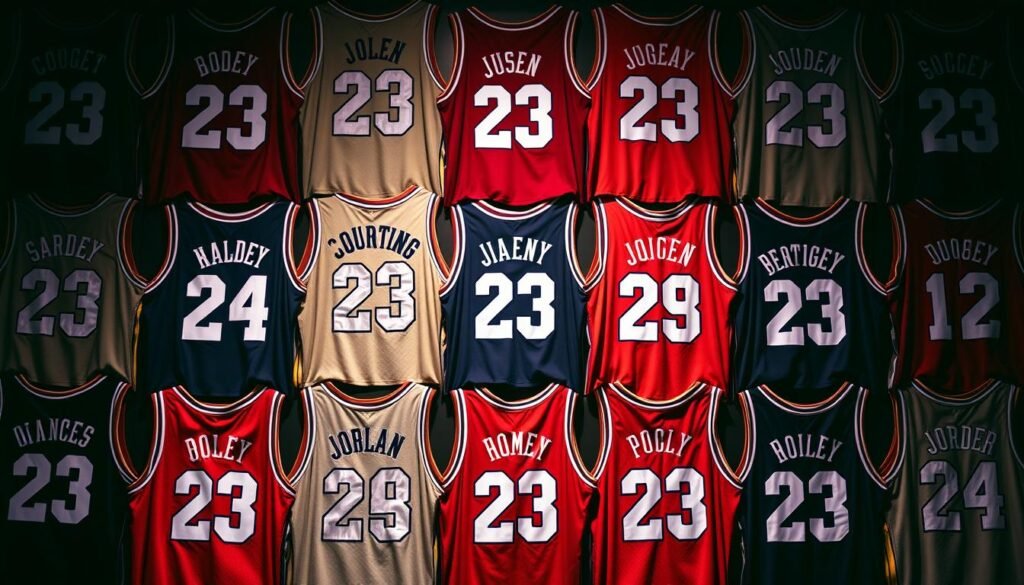
Superstitions and Numerical Beliefs
Superstitions also play a role in the selection of jersey numbers. Some players believe certain numbers bring them good luck or enhance their performance on the court. These beliefs can be deeply personal and are often influenced by cultural or individual superstitions.
Cultural and Religious Number Significance
Cultural and religious beliefs can also influence the choice of jersey numbers. Certain numbers may hold specific meanings in different cultures or religions, and players might choose numbers that resonate with their personal beliefs or heritage. For example, some cultures consider certain numbers lucky or auspicious, which can influence a player’s decision.
In conclusion, the choice of jersey numbers among NBA players is a complex and personal decision, influenced by a variety of factors including childhood heroes, family connections, superstitions, and cultural or religious beliefs. Understanding these personal significances adds depth to our appreciation of the game and its players.
Famous Jersey Number Traditions in NBA History
The NBA has a rich history of iconic jersey numbers that have become synonymous with greatness. These numbers have transcended their numerical value to represent excellence, skill, and sometimes, a player’s personal story.
The Legacy of #23: Jordan, James, and Beyond
The number 23 has become an iconic number in the NBA, largely due to Michael Jordan’s success. Jordan’s impact on the league and his marketability made #23 a symbol of basketball greatness. Other notable players like LeBron James have also worn #23, continuing its legacy. The appeal of #23 lies in its association with Jordan’s competitive spirit and achievements.
Iconic Single-Digit Jerseys
Single-digit jersey numbers, such as #1 and #3, are also highly popular among NBA players. These numbers symbolize simplicity and confidence. Players like Allen Iverson with #3 have made these numbers iconic. Single-digit numbers are often associated with a player’s identity and can become a hallmark of their career.
The Prestigious #33 Throughout NBA Eras
The number 33 has been worn by several legendary players, including Kareem Abdul-Jabbar and Larry Bird. This number has become prestigious due to its association with dominant centers and versatile forwards. Players who wear #33 are often seen as embodying the qualities of these basketball legends.
In conclusion, certain jersey numbers have become deeply ingrained in NBA culture, symbolizing greatness and leaving a lasting impact on the league. The choice of jersey number remains a significant aspect of a player’s identity and career.
Retired Numbers: The Ultimate Honor
The NBA has a long-standing tradition of retiring jersey numbers to honor its greatest players. This practice is a testament to the significant impact these athletes have had on their teams and the league as a whole.
How Teams Decide to Retire Numbers
Teams decide to retire numbers based on a player’s achievements, contributions to the team, and their overall influence on the game. The decision-making process typically involves team management and sometimes fan input. For instance, the Atlanta Hawks retired Pete Maravich’s and Dikembe Mutombo’s jersey to honor their legacy.
League-Wide Retired Numbers
The NBA also retires numbers league-wide to honor players who have made significant contributions to the sport. This is a rare and prestigious honor, reserved for players who have left an indelible mark on the game.
Bill Russell’s #6 and Its Historical Significance
One notable example is Bill Russell’s #6, which was retired league-wide in honor of his remarkable achievements and impact on the game. Russell’s legacy extends beyond his on-court accomplishments, as he played a pivotal role in shaping the NBA into what it is today.
The retirement of Bill Russell’s #6 is a powerful symbol of the NBA’s appreciation for his contributions, both on and off the court. It serves as a reminder of the enduring legacy of one of basketball’s all-time greats.
In conclusion, retiring numbers is a meaningful way for the NBA to honor its greatest players. By examining the criteria for retirement and notable examples like Bill Russell’s #6, we gain a deeper understanding of the significance behind this tradition.
Number Changes: When and Why Players Switch
A player’s jersey number is a personal brand, and changing it can be a complex decision influenced by various factors. In the NBA, players may switch their jersey numbers due to trades, personal rebranding, or other significant reasons.
Trade and Team Change Scenarios
When a player is traded or changes teams, they might need to switch their jersey number. This is often due to the new team already having a player with the same number or because the number is retired by the new team. For instance, when a player like LeBron James moves to a new team, he might have to adjust his jersey number to comply with team rules.
Personal Rebranding Through Number Changes
Some players change their jersey numbers as part of a personal rebranding effort. This could be due to a change in their playing style, a new role within the team, or a desire to refresh their image. For example, Kobe Bryant changed his number from 8 to 24 during his career, marking a significant shift in his personal brand.
Notable Players Who Changed Their Numbers Mid-Career
Several notable NBA players have changed their jersey numbers mid-career. Besides Kobe Bryant, other examples include players who have switched numbers due to team changes or personal reasons. These changes often garner significant attention from fans and media, highlighting the importance of a player’s jersey number as part of their identity.
In conclusion, NBA players change their jersey numbers for a variety of reasons, including trades, personal rebranding, and other significant career events. Understanding these changes provides insight into the complex relationship between a player and their jersey number.
Unusual Number Choices and Their Stories
Some NBA players opt for unique basketball jersey numbers that reflect their individuality or pay homage to their inspirations. These unconventional choices often tell fascinating stories about the players who wear them.
Players with Unconventional Numbers
Numbers like 77, worn by Luka Doncic, and 99, worn by Jae Crowder, are not typical choices in the NBA. These numbers stand out and often spark curiosity among fans. Doncic, for instance, chose 77 because it was his favorite number growing up in Slovenia. Such unique choices make a player’s jersey instantly recognizable.
The Psychology Behind Unique Number Selections
The psychology behind choosing unusual basketball jersey numbers can be linked to personal significance, superstition, or simply a desire to stand out. Players may choose numbers that hold sentimental value or those that they believe will bring them good luck. This personal touch adds a layer of depth to the player’s identity on the court.
International Influences on Number Preferences
International players often bring their own cultural influences to their choice of basketball jersey numbers. For some, certain numbers may be considered lucky or significant in their culture. This international flavor adds diversity to the NBA, making the league a melting pot of different traditions and preferences.
In conclusion, the stories behind unusual basketball jersey numbers highlight the individuality of NBA players. Whether influenced by personal history, superstition, or cultural background, these numbers contribute to the rich tapestry of NBA history and culture.
The Cultural Impact of NBA Jersey Numbers
Jersey numbers worn by NBA players have a profound effect on culture, fashion, and fan identity. The numbers have become an integral part of a player’s brand, influencing not just how fans perceive them but also broader cultural and fashion trends.
Jersey Numbers in Pop Culture and Fashion
NBA jersey numbers have seeped into mainstream pop culture, with references in music, movies, and social media. For instance, the iconic number 23, famously worn by Michael Jordan, has been referenced and worn by fans worldwide, symbolizing a connection to the basketball legend. Fashion brands have also capitalized on popular jersey numbers, incorporating them into their designs.
Fan Connections to Player Numbers
Fans often form strong emotional bonds with their favorite players’ jersey numbers. Wearing a jersey with a player’s number is a way for fans to show their allegiance and feel connected to the player and the team. This connection can be so strong that when a player changes teams, fans often continue to support them by purchasing jerseys with their old team number.
“The right number on the back of a jersey can be a powerful symbol of identity and loyalty for fans.” – NBA analyst
Collector Value of Specific Jersey Numbers
Certain jersey numbers, especially those associated with legendary players or significant moments in NBA history, can hold substantial collector value. For example, a jersey worn by Michael Jordan during his last season with the Chicago Bulls can fetch a high price at auction due to its historical significance and the iconic number 23.
| Jersey Number | Player | Collector Value |
|---|---|---|
| 23 | Michael Jordan | High |
| 33 | Kareem Abdul-Jabbar | High |
| 30 | Stephen Curry | Moderate |
In conclusion, NBA jersey numbers have a significant cultural impact, influencing fashion, fan identity, and collector communities. Their influence extends beyond the basketball court, making them an integral part of popular culture.
Conclusion: The Enduring Significance of NBA Jersey Numbers
NBA jersey numbers continue to hold a special significance for players, fans, and the sport as a whole. The choice of jersey number is a personal expression of identity and style, influenced by a variety of factors including personal preference, cultural background, and team traditions.
Understanding how NBA jersey numbers are chosen provides insight into the complex interplay between NBA player rules, personal expression, and cultural identity. As the NBA continues to evolve, the significance of jersey numbers remains a constant aspect of the game, reflecting the unique personalities and styles of the players.
The cultural impact of NBA jersey numbers is evident in their influence on fashion, pop culture, and fan engagement. As a symbol of a player’s identity, jersey numbers continue to play a vital role in the NBA experience, fostering a deeper connection between players and their fans.
